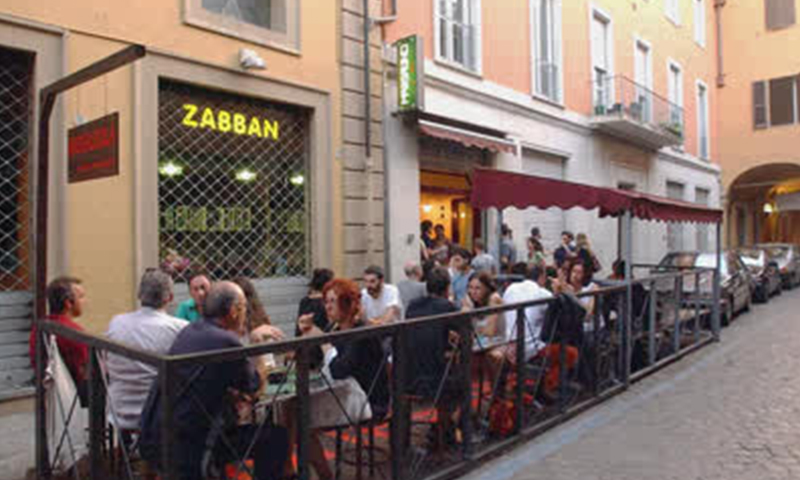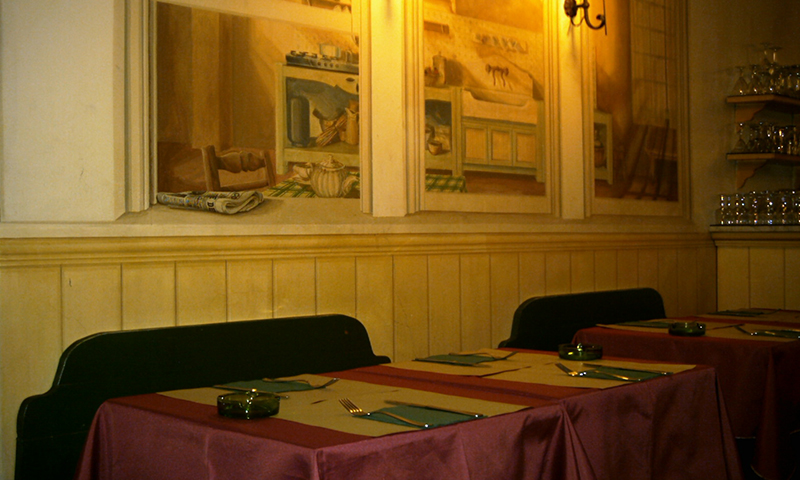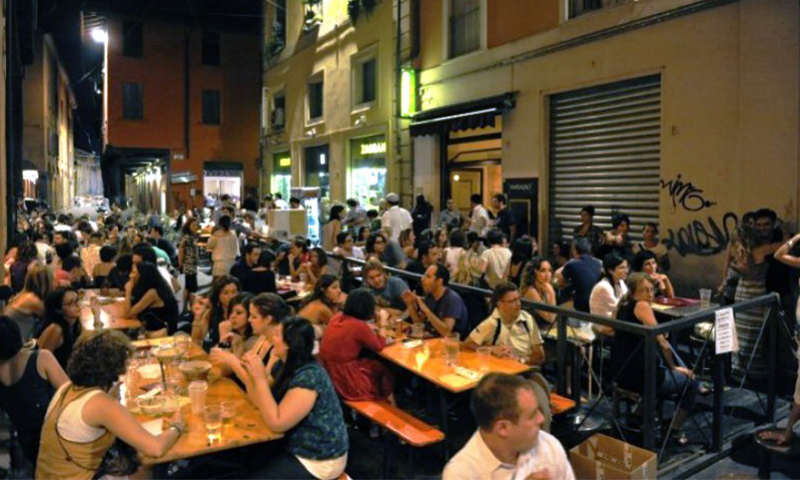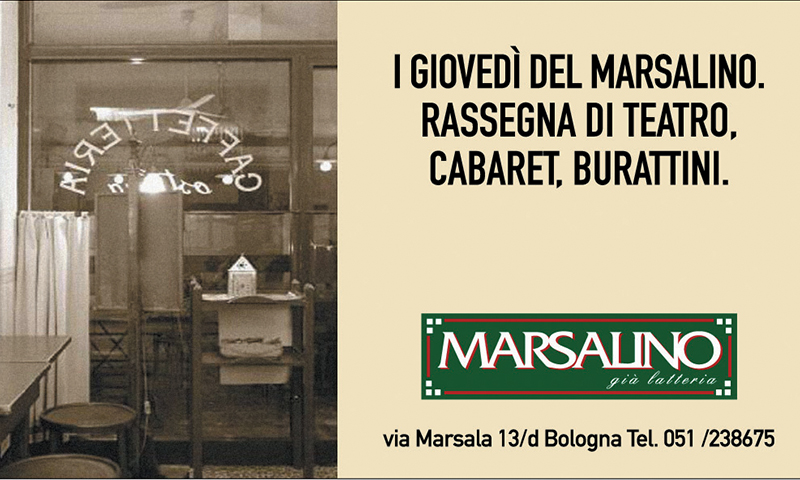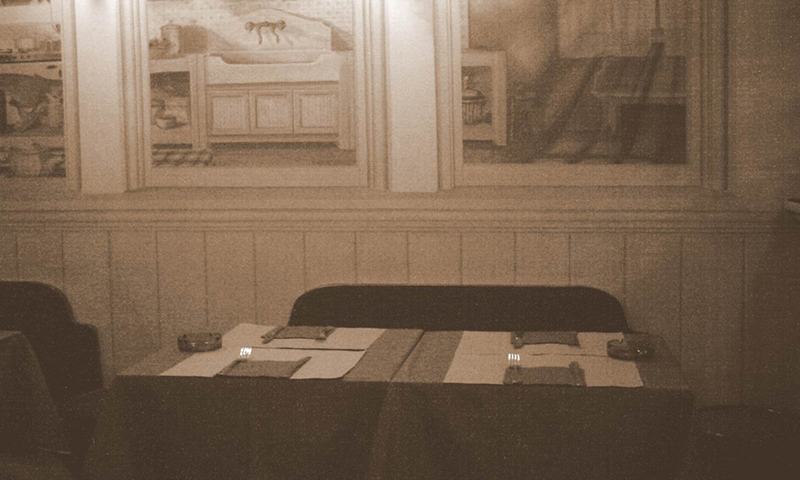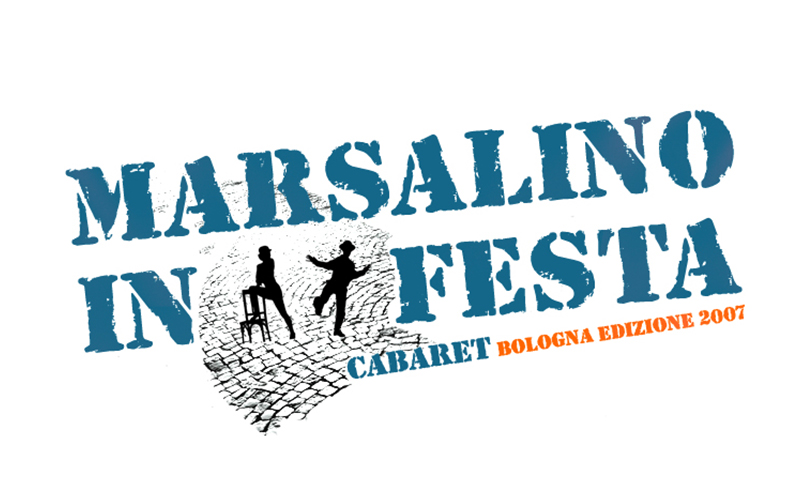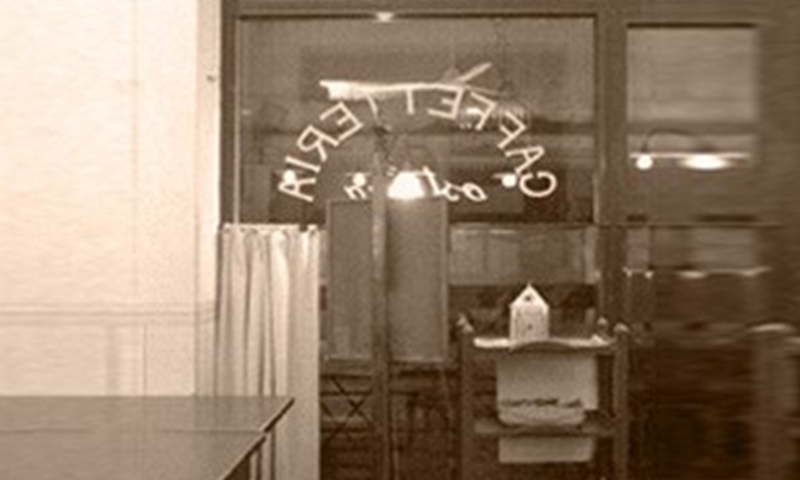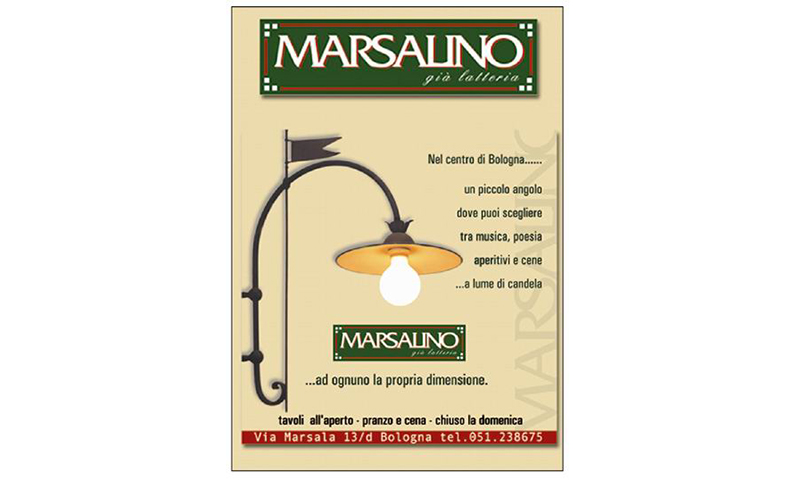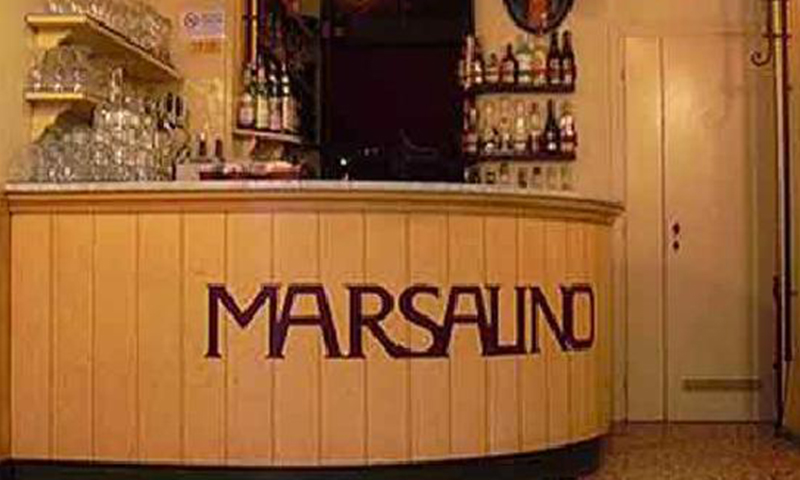
Osteria Marsalino
The passionate soul of a city that loves to gather
Once upon a time, in the heart of Bologna’s historic centre, there was a little herbal tea shop on Via Marsala run by two women with a deep love for tea.
It was 1998 when Gaetano Lanza, barely in his twenties, recognised the potential of this hidden gem and transformed it — while keeping its charming exterior intact, into something far greater: a place for flavour, conversation, and culture.
And so, Osteria Marsalino was born — a venue that, over time, would leave a lasting mark on the lives and memories of many. It wasn’t just a bar or a restaurant. It was an urban lab of ideas, flavours, and above all, connection.
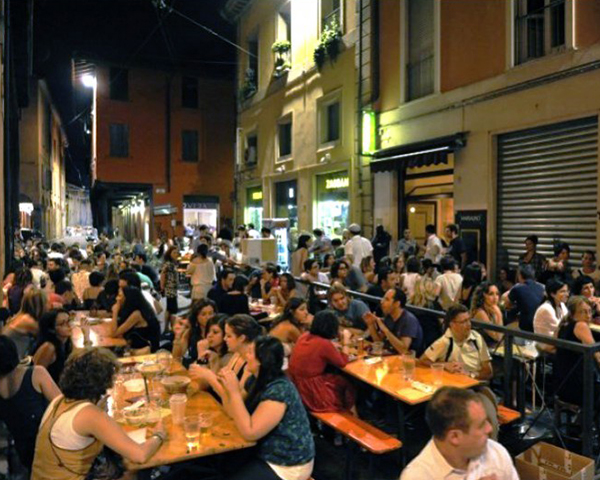
A small revolution in the world of aperitivo
The menu took its cues from simple, traditional Bolognese cuisine, with a curious and open eye toward fusion: rustic crostoni, pasta al pomodoro, ragù tagliatelle, light carpaccios, inventive salads, and spiced couscous… a menu that was honest, creative, and welcoming.
But it was the aperitivo that first broke the mould. At a time when in Bologna a bowl of crisps and a few olives counted as an aperitif, Marsalino introduced something new: a generous house-made buffet, later served directly at the table, featuring frittatas, crostoni, and freshly made finger food.
A simple idea, but a powerful one. It turned aperitivo into a daily ritual.
Today it’s a common format — but back then, it was quietly revolutionary.
A meeting point for artists and creatives
Marsalino, however, wasn’t only about food. It thrived on voices, stories, and live performance. Writers, musicians, actors, and comedians gathered around its tables — to talk, to write, to search for inspiration.
It was the kind of place where you might bump into artists who would later become household names: Manuel Agnelli, Samuele Bersani, Cesare Cremonini, Ficarra e Picone, Oscar De Summa, Alessandro Gaber, Gino e Michele… and many others.
It was a vibrant, inclusive, and open place. Full of theatre, music, and ideas. In many ways, a precursor to social media — when social media didn’t yet exist. Marsalino was the feed, the bulletin board, and the push notification of a Bologna that was alive, free, and full of heart.
The Marsalino Thursdays and a lasting legacy
Then came The Marsalino Thursdays — a comedy showcase that ran for over ten years, hosting more than 100 comedians, from up-and-coming voices to well-known performers.
Everyone wanted to be part of it: to feel that joyful, unfiltered atmosphere, and to stand on that tiny three-square-metre stage, with a single spotlight, a moveable curtain, and an enormous amount of passion.
The venue became a key reference point for Italian comedy, closely tied to the TV show Zelig, which discovered some of its next stars right there. In a TV special by journalist Stefano Curone, TG1 ranked it among the seven most important cabaret venues in Italy.
Marsalino was all of this: a small place with a huge heart. A space where nights ran long, and ideas flowed before the wine even did. A corner of Bologna that was ahead of its time, where people mixed freely, and stayed.
In 2010, Gaetano Lanza passed the baton to a new generation of young entrepreneurs.
Marsalino is still there, on Via Marsala. But those who experienced it know that its sense of belonging, surprise, and humanity can’t just disappear.
Because some places aren’t just remembered. They’re passed on, retold — and make your heart skip a beat every time you walk by.

